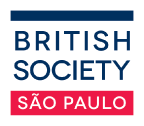Remembrance Sunday Sermon
/The beginning of 1918 brought good news and bad news to the allies. The bad news was that the Bolsheviks took power under Lenin in Russia on the 7th November 1917 and they signed a ceasefire with Germany on the 15th December that year. On 3rd March 1918, the Treaty of Brest-Litovsk was signed between the Bolsheviks and Germany putting to an end the war on the Eastern front, thus liberating 50 divisions of German troops (nearly a million soldiers) to go and fight on the Western front against the allies.
The good news was that, although the U.S.A. had declared war on Germany on the 6th April 1917 and the Austro-Hungarian Empire on the 7th December, it was now in March 1918 that large numbers of American troops began arriving on the Eastern Front (as many as 10 thousand a day). These new and fresh troops boosted the morale of the allied troops who were exhausted after nearly four years of war.
From then on, the tide of the war changed with the allied troops making significant advances until at 5 o’clock in the morning on the 11th November 1918, the Allied Supreme Commander, Marshal Ferdinand Foch signed an Armistice with Germany in his railway carriage in the forest of Compiègne, France, with the ceasefire taking effect at 11 o’clock on that day.
So, on the 11th hour of the 11th day of the 11th month of 1918, World War 1 came to an end.
But at what a cost! 9 million combatants killed, 23 million wounded, not to mention 7 million civilians who died as a result of military action or malnutrition.
The British Prime Minister addressing the House of Commons that day said “At 11 o’clock this morning came to an end the cruellest and most terrible war that has ever scoured mankind. I hope we may say that thus, this fateful morning, came to an end all wars”.
Without a doubt, this feeling was shared by millions of people throughout the world who fervently prayed that Micah’s prophecy which her Majesty’s Consul-General read a few moments ago would finally take place and that:
“The Lord Almighty will judge between many peoples and will settle disputes for strong nations far and wide.They will beat their swords into ploughshares and their spears into pruning hooks. Nation will not take up sword against nation, nor will they train for war anymore.”
Unfortunately, as we have seen far too many times in the 100 years that separate us from that Armistice Day, that that dream and prophecy have not been fulfilled and war has raised its ugly head over and over again. But it is on days like today, that we must renew that dream and strive for peace in this troubled world.
That wonderful poem that the President of the Royal British Legion read, “In Flanders Felds” was written by Lieutenant Colonel John McCrae shortly after burying his friend and fellow soldier, Lieutenant Alexis Helmer, who was killed when a bomb exploded next to him.
Now a days the war cemeteries in Flanders are beautiful with lovely white crosses stretching row after row amid green grass and red poppies. However, the crosses that John McCrae was thinking about were crosses just like this one and many inscribed with the words just like this one “An unknown Soldier”
Let us listen to the words of John McCrae once again:
In Flanders fields the poppies blow
Between the crosses, row on row,
That mark our place; and in the sky
The larks, still bravely singing, fly
Scarce heard amid the guns below.
We are the Dead. Short days ago
We lived, felt dawn, saw sunset glow,
Loved and were loved, and now we lie
In Flanders fields.
Take up our quarrel with the foe:
To you from failing hands we throw
The torch; be yours to hold it high.
If ye break faith with us who die
We shall not sleep, though poppies grow
In Flanders fields.
Yes, let us not break faith with them who died for the freedom we know, but carry the torch of freedom flaming high and bring peace and goodwill to this troubled world so that they can peacefully sleep among the poppies in Flanders fields.
Bishop Roger Bird



